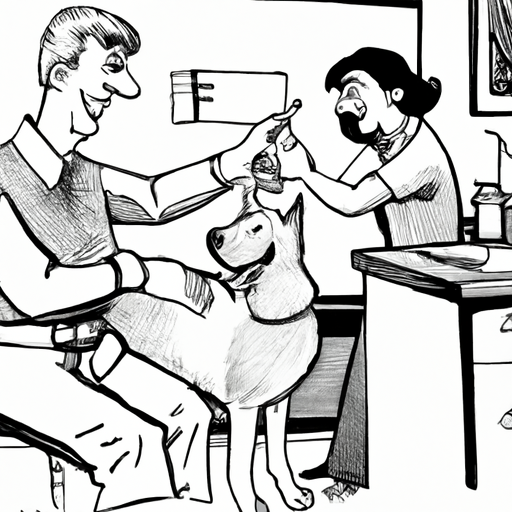Your Dog’s Healthcare: The Importance of Vaccines
As a caregiver, you know that safeguarding the health of your beloved pet is your top priority. Vaccines play an important role in maintaining your dog’s health, protecting them from a variety of diseases, and ensuring their long, happy life with you. Vaccines work by stimulating the immune system to fight off diseases, a crucial line of defense particularly for those dogs who love to explore and interact with their environment.
Understanding Core and Non-Core Vaccines
When it comes to vaccines, they are generally divided into two categories:
- Core vaccines: These are essential for all dogs, regardless of their lifestyle or location. They offer protection against diseases that are widespread, have severe symptoms, or pose a significant risk of death. Examples include Canine Distemper, Canine Parvovirus, and Rabies.
- Non-core vaccines: These are recommended based on a dog’s exposure risk, which can be influenced by their location or lifestyle. Examples include Bordetella (kennel cough) and Leptospirosis.
| Core Vaccines | Non-Core Vaccines |
|---|---|
| Canine Distemper | Bordetella |
| Canine Parvovirus | Leptospirosis |
| Rabies | Lyme |
Where to Get Your Dog Vaccinated
There are numerous places you can go to get your dog vaccinated:
- Veterinary Clinics: This is the most common place to get your dog vaccinated. The benefit of using a veterinary clinic is that they can provide a full health check-up in addition to the vaccination.
- Animal Shelters: Some animal shelters offer low-cost vaccination clinics for dogs.
- Pet Stores: Certain pet stores offer vaccination clinics at specific times.
Remember, when choosing where to get your dog vaccinated, consider factors such as cost, convenience, and the reputation of the clinic or store.
When to Vaccinate Your Dog
Your dog’s vaccination schedule will depend on a number of factors, including their age, medical history, lifestyle, and the type of vaccine. Generally, puppies receive a series of vaccines starting at six to eight weeks of age, with boosters given every three to four weeks until they’re about 16 weeks old. Adult dogs may receive certain vaccines annually, while others might be given every three years or longer.
How to Prepare for Your Dog’s Vaccination
Before your dog’s vaccination appointment:
- Ensure your dog is in good health. If your dog is sick or stressed, it may be best to delay the vaccination.
- Make sure your dog has not eaten for at least an hour before the vaccination to prevent possible nausea.
- Bring any vaccination records you have. This will help the veterinarian determine which vaccines your dog needs.
FAQ
Q: Can vaccines make my dog sick?
A: While vaccines stimulate the immune system, they can sometimes cause mild symptoms such as a slight fever or decreased appetite. These are normal and should pass within a day or two.
Q: Is it really necessary to vaccinate my dog?
A: Yes. Vaccinations protect your dog from serious diseases, some of which can be fatal.
Q: How often does my dog need to be vaccinated?
A: It depends on the vaccine and your dog’s age and lifestyle. Your vet will be able to provide a vaccination schedule for your dog.
Q: What should I do if my dog has a reaction to a vaccine?
A: If your dog has a severe reaction to a vaccine, such as difficulty breathing or collapse, contact your vet immediately.
Remember, as a caregiver, your dog’s health and wellbeing is in your hands. Regular vaccination can help ensure they live a long, happy, and healthy life by your side.



